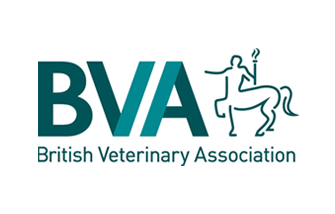Choosing a vet
Choosing the right vet for you can be daunting, but it’s worth doing some research to make sure you pick the right practice for you and your pet.
It’s illegal for anyone in the UK who isn’t registered with the Royal College of Veterinary Surgeons (RCVS) to practise as a vet. You can check if your vet is registered on the RCVS website.
How do vet practices work?
Some veterinary practices operate with just one veterinary surgeon and one member of staff. Others may have 15 of more vets with a similar number of nursing and support staff.
Practices may operate on more than one site – the main practice being supported by 3 or more branch surgeries. The branch surgeries may have limited on-site facilities and equipment, but they allow you to see a vet without having to travel long distances.
Facilities do vary between practices. Some may have extensive equipment and facilities on-site, while others contract some services out to specialist firms or labs. Similarly, veterinary surgeons may refer unusual or complicated cases to veterinary surgeons who specialise in a particular species or discipline.
What is 24-hour cover?
Whatever the size of the premises, veterinary surgeons have to make sure that 24-hour emergency cover is available for their clients every day of the week.
They can do this in several ways; a practice may provide this themselves, or some practices get together locally to provide this service, which may mean that you have to travel to a different practice in a emergency.
Other practices choose to use a dedicated out-of-hours service (similar to the ones that we are familiar with from GPs).
Roles in a veterinary practice
There are different staff roles working in veterinary practices including veterinary surgeons, veterinary nurses, practice managers, and receptionists. Visit the RCVS website for more information about how a practice operates and who is involved.
This short video explains the different roles in a veterinary practice and why they are important.
We have also written a Guide about the veterinary practice team.

What to expect on your first vet visit
Your veterinary surgeon is there to help you care for your pet and make sure it enjoys a good quality of life, and they should be happy to provide advice if you ask for it. Getting to know your veterinary surgeon, your veterinary practice, and the team of dedicated professionals who run it, is one of the best things you can do for your pet.
It can be helpful to bring some basic information with you to your vet visit, such as your pet’s previous medical history, their habits, travel history, and vaccination record. Some clinics ask that you bring cats and small animals in a travel case, and that dogs remain on a leash.
Don’t be afraid to take notes or to ask questions, your veterinary surgeon will be happy to help.
How do I find a vet?
All vets in the UK are registered of the Royal College of Veterinary Surgeons (RCVS). Their Find a Vet page allows you to search by practice name, postcode or town, and you can find practices that treat specific species and those that are accredited under the Practice Standards Scheme.


RCVS Practice Standards Scheme
The Practice Standards Scheme, run by the Royal College of Veterinary Surgeons, exists to help veterinary practices demonstrate their level of service through quality assurance.

